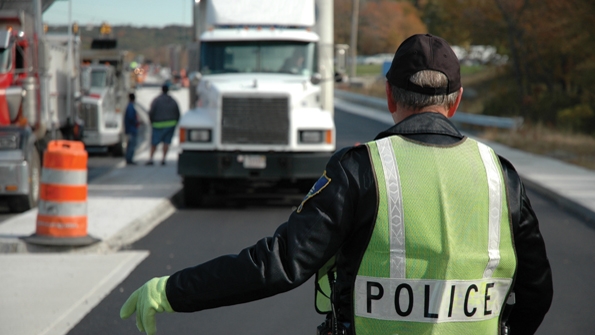Cargo theft throughout Europe is on the rise. Nearly $23 billion USD (£16 billion) in losses were reported last year, with a large portion of them taking place in the United Kingdom and the Netherlands, according to a BSI’s 2015 Global Supply Chain Intelligence report.
Various supply chain threats and security concerns have contributed to the increase in trade disruption and thefts. Incidents such as the Paris terrorist attacks in November 2015 resulted in losses of $3.5 million USD (£2.4 million) for the Belgian shipping industry, according to that same BSI report, and also served to highlight the links between terrorism and the supply chain.
Terrorist smuggling rings have also been working together between Spain and the Middle East. Together, they facilitate the illegal transport of stolen electronics, weapons, drugs and other contraband items.
Besides Spain, notable numbers of cargo theft related incidents also occurred in Italy and France; however, the UK and the Netherlands reported the highest number of cargo thefts in the first quarter of 2015. Both countries are under threat from well-organised cargo crime gangs who are becoming increasingly violent to gain access to goods.
Shockingly, the Transported Asset Protection Association for Europe, the Middle East and Africa (TAPA EMEA) has data which indicates more than 67% of all cargo thefts or attempts in Europe during the first quarter of 2015 took place in the two nations, and just 18 of the incidents made for a loss of €100,000. During that time, the UK reported 70 cargo-related crimes, an increase of 133% over the first quarter (Q1) of 2014. In the Netherlands, the rise was 17% over Q1 in 2014.

Mitigating the risks
A number of measures exists which shipping companies, lorry drivers and cargo facilities can undertake to help reduce the amount of cargo-related crimes happening throughout Europe.
First, trucks can utilise GPS tracking to determine their location at all times. This is especially useful if they are stolen. Additional geo-fencing solutions can also help by setting off alarms if vehicles go off-route or enter known high-risk areas.
There are a number of companies around the world working along the industry to provide telematics solutions. One company in particular named Orbcomm Inc. has just won an award from the Connected World magazine for developing solutions to minimise cargo thefts. The company’s solutions are designed to remotely track, monitor and control both mobile and fixed assets for those who work in transportation and distribution.
Other GPS tracking solutions come are provided by companies such as Fleetmatics that provide real-time tracking, alerts and Geo-fences. Trailermatics, a telematics trailer expert offering GPS tracking on containers and swap bodies.
Within cargo vehicles, a number of different locking mechanisms can also be deployed to help secure the vehicles and its cargo. Furthermore, air brake valve locks that prevent the release of vehicles park brakes can also be installed in addition to the locks and seals on doors. These tools are highly recommended by the Cargo Security Alliance.
All shipping professionals can also play their part by staying alert, whether on the road or working in a cargo storage facility. Look out for signs that a building is under surveillance, such as people loitering around the perimeter taking notes or photos, or vehicles following trucks.
Being aware of the details of the supply chain can also help reduce opportunities for theft. From pick up to collection, knowing who is scheduled to handle each aspect of a shipment and verifying identification before releasing a load is essential. Furthermore, maintaining good communication with everyone involved, monitoring delivery schedules, reviewing security procedures and expecting how many stops cargo will make along its route will all help reduce the likelihood of theft.
Even the most basic safety procedures go a long way towards helping cut down on cargo-related crime. Maintaining well-lit facilities, keeping trucks locked, parking in an organised way and ensuring alarms are working are imperative steps towards increasing cargo security.
Finally, when hiring new employees involved with any aspect of shipping, from working within a warehouse to driving a lorry, rigorous screening must be implemented. Screening and training employees can help weed out potential “inside jobs”.
Working towards theft reduction
While it’s extremely difficult to eliminate cargo theft in Europe, being vigilant and taking every step possible to protect shipments will go a long way towards reducing the number of incidents. There are many businesses and organisations who are dedicated to providing a variety of security solutions for the shipping industry.
With better understanding of the problem, in-depth pre-screening and increased security measures, issues regarding cargo crime may start to decrease instead of rising throughout the remainder of 2016 and beyond.






